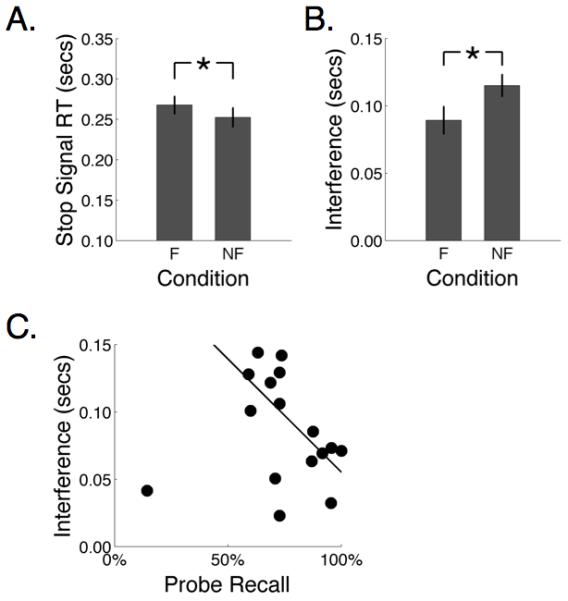Figure 3.

Behavioral results from experiment 1. A. Slower stopping with foreknowledge. Stop signal reaction time (SSRT) is slower in the foreknowledge (F) than no foreknowledge (NF) conditions. B. More selective stopping with foreknowledge. The stopping interference effect (measuring the selectivity of stopping) is smaller in the F than NF condition. C. Degree of foreknowledge predicts the selectivity of stopping. Participants with better cue recall of hand-to-be-stopped have smaller stopping interference effects.
